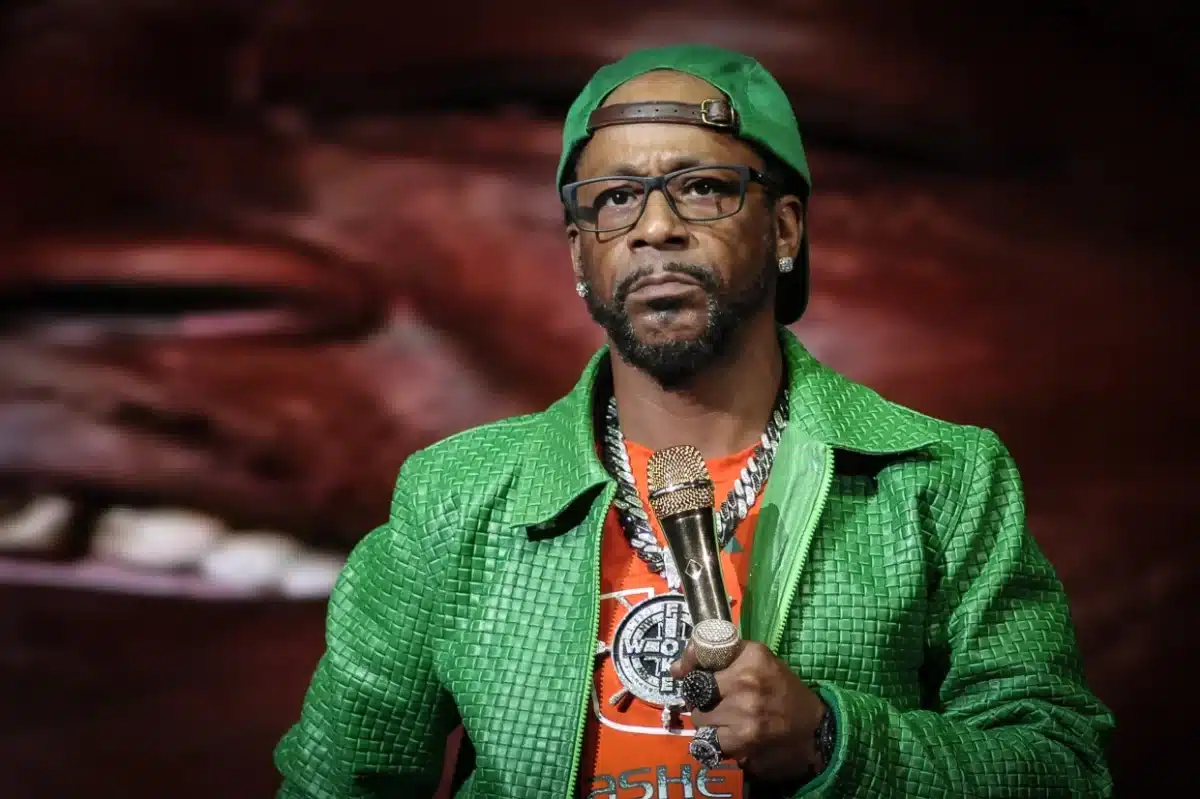Table of Contents
Comedy and Self-Reflection
Katt Williams, the name associated with smart and unapologetic humor, has openly discussed his past jokes and the wider meaning of his work. On the Vulture Festival, the comedian, who is known for his profound insights, stated that he could have taken a more restrained approach at some moments in his career. This introspection came as he discussed his jokes about Michael Jackson, who is still a personality both loved and disputed. While Williams did not specify which jokes he regretted, his reflections offered a glimpse into his evolving perspective on comedy and its influence.

During the interview, Williams admitted feeling a sense of regret about past jokes he made about Michael Jackson, the King of Pop. “I shouldn’t have, frankly,” he honestly said saying that those jokes might have been disrespectful. He ceased conversing the specifics of the jokes; he only illustrated that they participated in the bigger problem that is the destruction of popular characters in the Black community. He observed that such actions often align with oppressive systems that reward individuals for criticizing their own community, perpetuating cycles of internal division and harm.
Tension Between Humor and Responsibility
Williams reflected on the inherent tension in his role as a comedian. He explained that while his primary job is to entertain and make people laugh, he also sees himself as a voice for those who are often marginalized or silenced. “My job is to be funny first and to voice the opinion of a group that doesn’t get to have their opinion out there,” he remarked. However, this responsibility comes with challenges, particularly when jokes intended to provoke thought or laughter inadvertently perpetuate harmful narratives. Williams’s comments reveal his ongoing struggle to balance humor with the broader impact it may have on his audience and the community he represents.
Williams delved deeper into the societal dynamics that shape the entertainment industry and its impact on Black artists. He criticized the mechanisms that often elevate individuals who are willing to criticize or undermine their own communities. “It’s your ability to tear down your own kind no matter how high they are,” he noted, pointing out how systemic forces can exploit such behavior for entertainment and profit. This introspection underscores Williams’s awareness of the pressures and pitfalls faced by Black entertainers in a system that often prioritizes division over unity.
Williams’s reflections were largely about the necessity of self-love and respect within the Black community. At the center of his thought, Williams brought forward a simple, yet, powerful message, that self-love is the basis. He said, “As a Black man, if you don’t love yourself, you don’t love me,” showing the holistic approach that he believes connects individual and community well-being. Williams concerns can be seen both in his confessional tone about previous lapses and his ongoing commitment to better the society by bringing people together in mutual respect.
Reflecting on the Pain
Katt Williams has never shied away from being candid about the raw emotions behind his comedy, and his reflections on past jokes about Michael Jackson reveal a deeper layer to his craft. “So those were the jokes of a guy that was hurt, you know? By an icon,” Williams admitted, acknowledging that his humor sometimes stems from personal pain or disillusionment. Despite the controversy his jokes stirred, Williams expressed profound gratitude toward Janet Jackson, who displayed grace in the aftermath. “The fact that years later, Janet Jackson said she still loved me despite the jokes that I told about her brother is probably one of the most magnificent things,” he shared. This acknowledgment highlights the intersection of comedy, personal struggles, and the unexpected consequences of his work.
Katt Williams went on to discuss the toll his unapologetically blunt humor takes on him. “I say a lot of hilarious s**t. But it costs me every time, you know? Like, I’m never unscathed in these situations,” he remarked. His reflections underscore the personal and professional risks he faces by pushing boundaries in his routines. For Williams, the fallout from his jokes is often more than just public backlash—it involves grappling with the emotional weight of what his words represent and how they impact others. This sentiment sheds light on the precarious balance he tries to maintain between being true to his comedic voice and navigating the consequences of his provocations.
Call for Peace
Katt Williams’s reflections extend beyond his own experiences, touching on broader issues within the comedy world, particularly among Black entertainers. His remarks about other Black comedians and the dynamics of the entertainment industry have sparked controversy and conflict, drawing mixed reactions from peers and fans alike. One such target of his criticism, Faizon Love, has publicly called for reconciliation, urging for more interpersonal support and camaraderie among comics in the Black community. Williams’s sharp critiques and unapologetic observations have often fueled tensions, but they also underscore the importance of fostering unity and understanding in an industry that can be unforgiving.

Williams’s reflections also bring attention to the unique challenges faced by Black comedians in navigating humor that critiques cultural icons or sensitive issues. His jokes about Michael Jackson serve as a case study in the delicate interplay between humor, accountability, and the broader cultural context. The tension between being a voice for laughter and a figure of criticism is a recurring theme in Williams’s career. His comments suggest a desire for comedy to not only entertain but also challenge and heal, even when the execution sometimes misses the mark.
Comedy, Reflection, and Growth
As Katt Williams continues to engage with his audience and peers, it remains to be seen whether he will revisit or re-evaluate other jokes from his past. His ability to reflect on the impact of his humor, particularly when it intersects with personal pain or cultural sensitivity, demonstrates a willingness to grow and adapt. Whether through reconciliation with fellow comedians like Faizon Love or through refining his comedic approach, Williams’s journey as a performer remains as complex and layered as the jokes that have defined his career. For now, his reflections serve as a reminder of the power and responsibility that come with being a voice in comedy—and the personal costs that sometimes accompany that role.



